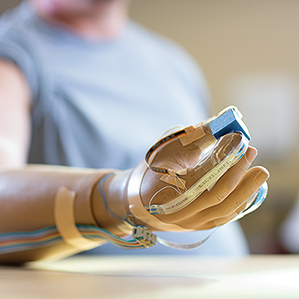This story got some attention a couple weeks back:
Two women have given birth using wombs donated by their own mothers.
The pair become the first ever to have children using the very womb that brought them into the world a generation earlier.
The breakthrough brings hope to the 15,000 British women who want children but were born without a womb or have had it removed.
The two mothers are among nine women to have been given womb transplants – seven of which have succeeded.
Allan Pacey of the British Fertility Society said: ‘That’s a very good success rate for a new surgical procedure. If it carries on like this, it may have a massive impact on things like surrogacy.
‘Women would much prefer to have their own baby and be pregnant than watch another woman be pregnant.’
The babies – both boys – were born a month ago in Sweden and are doing well with their mothers at home.
That prompted this analysis of the moral ethics of the operation, from Fr. Tad Pacholcyk, from the National Catholic Bioethics Center:
As we reflect on the ethics surrounding new medical treatments and technologies, it can help us to recall the general principle, enshrined in the “Catechism of the Catholic Church,” that the morality of a human act depends on three factors: the object, the end, and the circumstances involved. An act is morally good only if all three of these factors are morally good. If any one of them is bad, we recognize that the overall act itself becomes morally bad.
In the case of carrying out a womb transplant, the object of the act would be good, namely, to restore a woman’s bodily wholeness by transplanting a healthy womb in situations where she lacks one. The end for which the womb transplant would be carried out would also be good, namely, to achieve a pregnancy.
But particular circumstances can easily render the womb transplant immoral. If the transplant were done for the purposes of pursuing a pregnancy through IVF, this circumstance would render the entire act of the womb transplant morally bad and disordered, given that IVF is invariably immoral as a means to engender new human life. All reported instances thus far of womb transplants followed by successful pregnancies have arisen because of the use of IVF.
A similar problem with the circumstances of the transplant could arise if the womb that was used for transplant had been donated by a healthy woman still in her reproductive years who harbored a contraceptive intention and no longer desired to have more children of her own with her husband. In such a situation, her uterine donation would cause her to become sterile, and would represent a seriously flawed moral circumstance that would likewise render the action of receiving the transplanted womb unethical on the part of the other woman.
When might a womb transplant be morally acceptable? If a uterus were transplanted from either a deceased or a freely-consenting, post-menopausal woman to another woman whose ovaries, fallopian tubes and other reproductive tissues were then able to function so she could conceive a child within the marital embrace, rather than through IVF (and assuming minimal medical risks to both donor and recipient), the womb transplant could represent an ethical means of resolving her uterine-factor infertility. In conclusion, the specific circumstances of the donor and recipient are crucial in discerning the ethical appropriateness of this unusual procedure.











